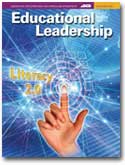Video games are part of the lives of almost all teens in the United States today. Are the effects of this ubiquitous game-playing negative, positive, or neutral?
According to a national telephone survey by the Pew Internet Project, 99 percent of boys and 94 percent of girls ages 12–17 play computer, Web, portable, or console games; and 50 percent play such games daily. The survey report, Teens, Video Games, and Civics, examines the extent and nature of teens' game playing and sheds some light on the relationship between this activity and young people's civic participation.
The survey found that the most popular games among respondents are Guitar Hero, Halo 3, Madden NFL, Solitaire, Dance Dance Revolution, Tetris, Grand Theft Auto, and The Sims. Thus, teens are not simply playing violent first-person shooter or action games: Their favorites include other genres, such as rhythm, sports, puzzles, and simulations. (However, boys are much more likely than girls to name a game rated M [Mature] as one of their favorites.)
Although most survey respondents play games by themselves at least occasionally, gaming is often a social experience for teens. Three-quarters play games with others (either in the same room or by connecting online) at least sometimes. Given this social component of gaming, the report explored whether game playing affected teens' civic lives. The answer was no. The survey found no significant relationship, either positive or negative, between the amount of game playing teens do and their civic activities and attitudes.
But certain kinds of game play do appear to foster higher levels of civic engagement. The social context of gaming offers opportunities for "civic gaming experiences," in which players have opportunities to help or guide other players; learn about problems in society; think about moral or ethical issues; help make decisions about how a simulated community, city, or nation should be run; and organize game groups or guilds. The survey found that teens who have had these civic gaming experiences report much higher levels of civic and political engagement than do teens who have not had these kinds of experiences. For example, they are more likely to go online to get information about politics or current events, to raise money for charity, to say they are committed to civic participation, to express an interest in politics, to stay informed about current events, and to participate in protests, marches, or demonstrations.
These results suggest that video gaming need not be an isolating, nonsocial activity for teens. It depends on the kinds of games young people play—and some kinds of social gaming connections may even encourage positive civic engagement.
To access the report, go towww.pewinternet.org/pdfs/PIP_Teens_Games_and_Civics_Report_FINAL.pdf.
